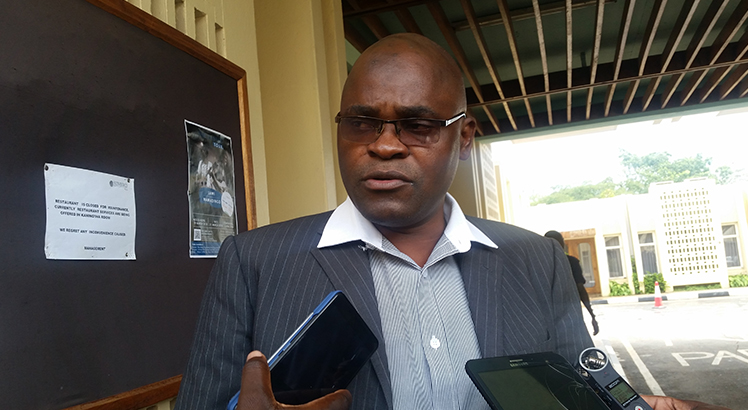Corruption stirs diplomatic storm
Last week, acting British High Commissioner Sophia Willitts-King expressed discontent at the rising theft of public resources in Malawi, warning that Malawians and donors cannot keep on putting money in a cup full of holes. In this interview, our Mzuzu Bureau Supervisor JOSEPH MWALE engages governance analyst Moses Mkandawire, from Livingstonia Synod’s Church and Society Programme, to unpack the diplomats’ concerns amid “entrenched impunity”.

What do you make of the British envoy’s concerns?
I would agree with the concerns raised. It seems a culture of impunity has been entrenched in our system and corruption has become a norm. In most cases, perpetrators of the vice seem to be freely enjoying and the victims are not getting the much-needed justice. It’s unfortunate that corruption and fraud have become pervasive and so entrenched that in some places, no one can provide or get a service without ‘palm oiling or greasing’ somebody.
We have several anti-corruption laws. Are they not enough?
Much as we cherish that we have the relevant laws, policies and institutions established to promote and defend the fight against corruption and related crimes, certain traits of transactional and systematic corruption are still going on and are impacting negatively on the security, growth and development of our country. So, it is not enough to have anti-corruption laws and institutions such as the Financial Intelligence Authority, Fiscal Police, Anti-Corruption Bureau and the courts. We have to make them work.
Where are we getting wrong?
The biggest problem is that since the rebirth of multiparty democracy in 1993, we, the people of Malawi, have let this country loose. We are to blame. We have created laws, policies and institutions, but they are not respected. We seem to have thrown away some of our values like that of ‘umunthu’ or integrity that we used to be known and admired for the world over.
Today, we have reached a point of praising and epitomising those who promote ‘collusive corruption’ for their own political and economic motives. Mostly, collusive corruption is pronounced in the procurement process where incidences of ‘bid rigging’ take centre stage. People hide behind weak procurement laws and procedures. Poor investigative skills and knowledge among some of the investigators are also a problem. There is also a limited number of professional and well-trained prosecutors in the country. Concentrating some of the prosecutors in a particular locality has been a great challenge as well.
You have been in civil society for decades. As watchdogs, you needed to keep such issues in check. What has been the role of CSOs in the decried mess?
Lack of financial support to local non-governmental organisations [NGOs] that could have helped in facilitating the checks and balances as well as raising some alarm is one of the challenges that we face. As we speak, it is rare for civil society organisations to embark on successful public litigation given serious legal restrictions in the name of a locus standi principle. NGOs or civil society organisations are told they do not have sufficient interest in some of these cases and yet we are the voice of the voiceless and watchdogs. There is a contradiction there.
After Cashgate revelations in 2013, have we learned anything from the scandal?
I would hesitate to state that we have learnt anything from that episode. Maybe one of the issues I would recall is that the then president [Joyce Banda] acknowledged that there was corruption in government. The mere fact that it was acknowledged that we have a problem may be could yield positive results in terms of mindset change. I am happy that almost all our leaders have repeatedly made mention of that. Others even stated that 30 percent of our budget is lost through corruption. Of course, this does not mean that the entire country is corrupt. It only points to the issue that the majority of those who have greater access to power and authority is somewhat corrupt. Cashgate revealed a lot to us. So, is there anything that we are doing differently now to speed up the investigations, prosecutions and confiscations of assets corruptibly obtained or acquired or indeed declaring the beneficial owners of the companies involved in some of these scandals, etc? It is unfortunate that other people have not been investigated and prosecuted up to now. Time continues to elapse. But this should not deter us from collectively making everybody in the corridors of power account for their action.
What do you think Malawi can do to make things better?
Given that corruption is systemic and entrenched, it would be extremely difficult to assume that it is going to be addressed in a day or two. The stakes are still high. Therefore, it will be a long process; it is going to take time for us to reduce the risks associated with corruption and fraud. We could, however, start with school-going children to share with them the dangers of corruption and fraud and how the practice is negatively impacting the security, growth and development of our country. That, honestly speaking, calls for a compressive curriculum review and capacity development for our teachers at all levels. Of course, litigation alone may likely not help solve the problems at hand in that it is expensive, takes time and targets few people among others.
Is there anything we need to do to make laws work?
We need to continue reviewing our laws so that no one uses any single loophole in the law or procedure to circumvent justice. We need to strengthen all institutions involved in the fight against corruption and fraud through capacity development, proper remuneration and motivation. We must also support civil society organisations with funding so that they continue with their watchdog role, lobbying and community mobilisation to break the cycle and circles of State capture and maintain the standards and control of the State. n





